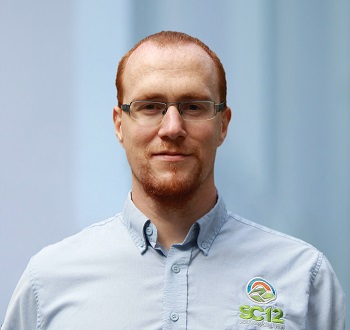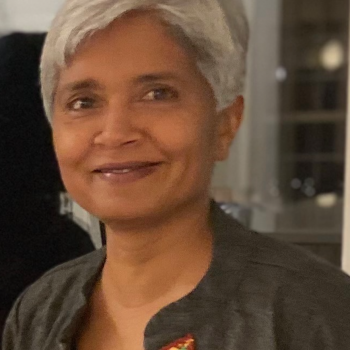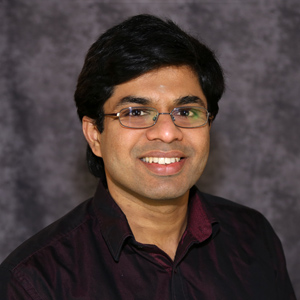Workshop Abstract
Modern software engineering is getting increasingly complicated. Especially in the HPC field, we are dealing with cutting edge infrastructure and a novel problem with unprecedented scale. The ability to monitor and analyze the performance of such applications and infrastructure is imperative for the future of improvement, design, and maintenance. In the current era, the writing and maintenance of these applications have ceased to be the job solely of computer scientists and have grown to encompass a wide variety of experts in mathematics, science, and other engineering disciplines. The fact that many developers from these disciplines have not received a formal education in computer science and rely increasingly on the tools created by computer scientists to analyze and optimize their code shows that there's a need for a forum to work together.
Workshop Overview
The Workshop on Performance EngineeRing, Modelling, Analysis, and VisualizatiOn STrategy (PERMAVOST) goal is to bridge tools developers and end users of performance analysis tools. It is a full day workshop with a keynote in conjunction with HPDC 2023. We are hoping that the stakeholders, which are application developers, domain scientists, analyst, and tools developers can collaborate and build a bridge to fill in the gaps in various topics such as:
- Key metrics, patterns, and performance pitfalls including the strategies to recognize and use the performance information to improve the applications.
- Facing challenges that are coming from the new computing architecture, programming paradigm, novel scientific problems, and various scales of data that need to be processed effectively.
- Research and needs to use modern principles of usability design integrated inside performance analysis tools to better aid its users.
- Analysis and methodology that can be utilized and understood for users with various HPC knowledge spectrum.
Topics of interest
Our workshop encompasses the following topics of interest, but are not limited to:
- Performance analysis and modelling on the real world applications
- Data visualization in high level performance analysis
- Usability studies of HPC tools
- Inefficiencies in programming patterns or computing architecture
- Patterns, anomaly detection, and performance characterization in HPC applications
- Performance engineering strategies and use cases
- Analyzing application performance in Cloud environment and other ubiquitous technology
- Performance management in the container and virtualisation environment
- Machine learning aided performance analysis
- Energy Management in Performance Analysis and Engineering
- Artificial Intelligence in performance analysis
- Quantum Computing in performance analysis
Call for Paper
All submitted papers should be formatted using the ACM Master Template with sigconf format (please be sure to use the current version). The necessary document can be found here.
General Instructions
- Full 6-8 page papers (including all text, figures and references)
- Submissions must be in English
- Submissions must be in PDF format
- Only web-based submissions are allowed. Paper needs to be submitted via PERMAVOST 2023 EasyChair
- We use single-blind reviewing process so you can keep authors' names, publications, etc.
- Papers will get 3 reviews
- Accepted papers will be published in the workshop proceeding as part of the ACM Digital Library
Program
Keynote Speech:
 |
Torsten Hoefler ETH Zurich |
"DaCe.Python: Performance Metaprogramming Towards Spatial Computers"
Python has become the de-facto language for scientific computing. Programming in Python is highly productive, mainly due to its rich science-oriented software ecosystem built around the NumPy module. As a result, the demand for Python support in High Performance Computing (HPC) has skyrocketed. However, the Python language itself does not necessarily offer high performance. In this work, we present Data-Centric Python (DaCe.Python) that retains Python's high productivity while achieving portable performance across different architectures. The workflow's key features are HPC-oriented language extensions and a set of automatic optimizations powered by a data-centric intermediate representation. We also define a set of around 50 benchmark kernels written in NumPy to evaluate and compare Python frameworks for their portability and performance. We show performance results and scaling across CPU, GPU, FPGA, with 2.47x and 3.75x speedups over previous-best solutions and the first-ever Xilinx and Intel FPGA results of annotated Python.
Torsten Hoefler is a Professor of Computer Science at ETH Zurich, a member of Academia Europaea, and a Fellow of the ACM and IEEE. His research interests revolve around the central topic of "Performance-centric System Design" and include scalable networks, parallel programming techniques, and performance modeling. Torsten won best paper awards at the ACM/IEEE Supercomputing Conference SC10, SC13, SC14, SC19, SC22, EuroMPI'13, HPDC'15, HPDC'16, IPDPS'15, and other conferences. He published numerous peer-reviewed scientific conference and journal articles and authored chapters of the MPI-2.2 and MPI-3.0 standards. He received the IEEE CS Sidney Fernbach Award, the ACM Gordon Bell Prize, the ISC Jack Dongarra award, the Latsis prize of ETH Zurich, as well as both ERC starting and consolidator grants. Additional information about Torsten can be found on his homepage at htor.inf.ethz.ch.
Invited Speech:
 |
Anshu Dubey Argonne National Laboratory |
"Performance portability without relying on C++ based abstractions"
Scientific software used on high performance computing (HPC) platforms is in a phase of transformation because of combined increase in the heterogeneity and complexity of models and hardware platforms. Having separate implementations for different platforms is not an option, therefore, computational science community has been looking for mechanisms to express code through abstractions that can be specialized for different platforms. Some approaches have met success through the use of template meta-programming in C++. However, their reliance upon C++ makes these approaches inaccessible to the non C++ codes. In this presentation, we describe a methodology and a set of tools for performance portability that we are developing for applications in any language. The tools also provide mechanism for mapping computation to different devices on a node, and a mechanism for orchestrating the data movement.
Anshu Dubey is a Senior Computational Scientist in Mathematics and Computer Science Division at Argonne National Laboratory, and a Senior Scientist in the Computer Science Department at the University of Chicago. Her research interests include design, architecture, and sustainability of multiphysics scientific software used on high performance computing platforms. She leads the development of Flash-X, a Multiphysics code designed for use on heterogeneous platforms.
 |
Hari Subramoni Ohio State University |
"Hey CAI - Conversational AI Enabled User Interface for HPC Tools"
HPC system users depend on profiling and analysis tools to obtain insights into the performance of their applications and tweak them. The complexity of modern HPC systems have necessitated advances in the associated HPC tools making them equally complex with various advanced features and complex user interfaces. While these interfaces are extensive and detailed, they require a steep learning curve even for expert users making them harder to use for novice users. While users are intuitively able to express what they are looking for in words or text (e.g., show me the process transmitting maximum data), they find it hard to quickly adapt to, navigate, and use the interface of advanced HPC tools to obtain desired insights. In this talk, we present the challenges associated with designing a conversational (speech/text) interface for HPC tools. We use state-of-the-art AI models for speech and text and adapt it for use in the HPC arena by retraining them on a new HPC dataset we create. We demonstrate that our proposed model, retrained with an HPC specific dataset, can deliver higher accuracy than the existing state-of-the-art pre-trained language models. We also create an interface to convert speech/text data to commands for HPC tools and show how users can utilize the proposed interface to gain insights quicker leading to better productivity. To the best of our knowledge, this is the first effort aimed at designing a conversational interface for HPC tools using state-of-the-art AI techniques to enhance the productivity of novice and advanced users alike.
Hari Subramoni is an assistant professor in the Department of Computer Science and Engineering at the Ohio State University, USA. His current research interests include high performance interconnects and protocols, parallel computer architecture, network-based computing, exascale computing, network topology aware computing, QoS, power-aware LAN-WAN communication, fault tolerance, virtualization, big data, deep/machine learning, conversational interfaces, and cloud computing. He has published over 130 papers in international journals and conferences related to these research areas. He is a member of ACM and IEEE
Presentation Video:
Paper Presentation:
- HPC Application Performance Prediction with Machine Learning on New Architectures - Dewi Yokelson (University of Oregon), Marc Robert Joseph Charest (Microsoft), Ying Wai Li (Los Alamos National Laboratory)
*The paper presentation will be followed by Q&A session
Discussion Panel:
 |
Jay Lofstead Sandia National Laboratory, USA |
 |
Sarah Neuwirth Goethe University Frankfurt, Germany |
 |
Tyler Allen University of North Carolina, Charlotte, USA |
"Holistic performance engineering and analysis: from UX until low level performance data"
In this panel, a team of three experts from different backgrounds will discuss challenges in achieving holistic performance engineering and analysis, whether a holistic approach is getting more important as HPC is getting more mainstream, and different perspective perceived by different stakeholders in different institutions. The panel is in the format of questions and answers sessions given by the moderator combined with interactive communication with the audience. We encourage participants to join our interactive panel discussion
Program Schedule
- 08:15 - 08:20 Welcome/Opening
- 08:20 - 09:10 Keynote
- 09:10 - 09:30 Paper Presentation
- 09:30 - 10:00 Invited Talk by Hari Subramoni
- 10:00 - 10:30 Invited Talk by Anshu Dubey
- 10:30 - 11:10 Panel Session
- 11:10 - 11:15 Ending Remarks
Workshop Chair
- Radita Liem - RWTH Aachen University, Germany
- Connor Scully-Allison - University of Utah, USA
- Ana Veroneze Solórzano - Northeastern University, USA
- Ayesha Afzal - NHR@FAU Erlangen-Nürnberg, Germany
- Pouya Kousha - The Ohio State University, USA
Program committee
- Ali Jannesari - Iowa State University
- Boma Anantasatya Adhi - RIKEN
- Brian J. N. Wylie - Juelich Supercomputing Center
- Chih-Kai Huang - University of Rennes
- Christian Terboven - RWTH Aachen University
- DK Panda - The Ohio State University
- Georg Hager - NHR@FAU Erlangen-Nürnberg
- Gagan Agrawal - Augusta Unversity
- Hari Subramoni - The Ohio State University
- Jay Lofstead - Sandia National Lab
- Kate Isaacs - University of Arizona
- Rocío Carratalá Sáez - University of Valladolid
- Rui Wu - East Carolina University
- Sameer Shende - University of Oregon
- Sarah Neuwirth - Goethe University Frankfurt
- Thomas Gruber - NHR@FAU Erlangen-Nürnberg
- Thomas Ilsche - ZIH TU Dresden
- Tirthak Patel - Rice University
- Vinh Le - University of Nevada
Contact
If you have any problems or questions, please contact us via e-mail at: liem@itc.rwth-aachen.de and or kousha.2@osu.edu